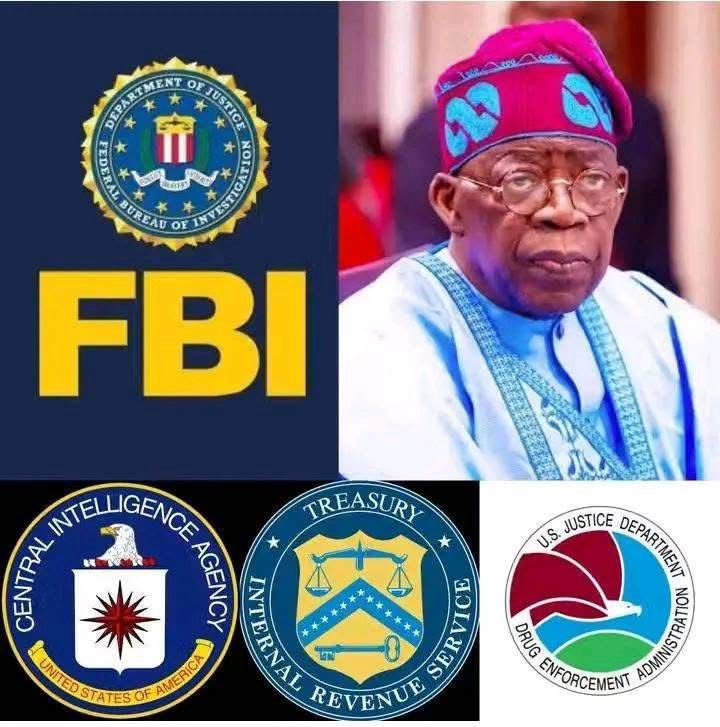BREAKING NEWS: FBI, IRS, DEA & CIA Set to Release PBAT Investigation Report on May 2, 2025

Washington, D.C. — In an unprecedented display of inter-agency cooperation, four of the United States’ most powerful federal bodies—the Federal Bureau of Investigation (FBI), Internal Revenue Service (IRS), Drug Enforcement Administration (DEA), and the Central Intelligence Agency (CIA)—are scheduled to release a long-awaited investigative report on the PBAT case this Friday, May 2, 2025.
The PBAT investigation, which has been shrouded in secrecy since its inception nearly two years ago, has been the subject of intense speculation across political, media, and international spheres. While officials have remained tight-lipped about the full scope of the operation, sources close to the matter describe it as one of the most comprehensive multi-agency probes in recent U.S. history—spanning organized crime, financial fraud, drug trafficking, and alleged national security breaches.
What Is the PBAT Case?
While the acronym “PBAT” has not been publicly defined by federal authorities, speculation abounds. Some believe it refers to an international cartel operation involving multiple shell corporations. Others link it to high-level political corruption, possibly even involving foreign governments. Still others suggest it may involve artificial intelligence misuse or cybersecurity breaches threatening critical infrastructure.
What is clear is that PBAT has drawn the attention of agencies with distinct, and often siloed, mandates—each bringing its own expertise to the case.
The FBI, the nation’s premier domestic intelligence agency, is believed to have spearheaded the early stages of the investigation. Meanwhile, the IRS’s Criminal Investigations Division is said to have tracked a web of complex financial transactions. The DEA’s involvement points to significant ties to narcotics trafficking, and the CIA’s role suggests at least some international dimension—potentially even espionage.
High-Level Coordination
The announcement of the May 2 release was made late Tuesday evening during a joint press statement from the Department of Justice. U.S. Attorney General Danielle Foster said the release would offer “transparency without compromising national security” and represent a “watershed moment in inter-agency accountability.”
According to Foster, the 300-page unclassified version of the report will be made publicly available at 10 a.m. EDT on May 2, accompanied by a live briefing from agency representatives. A classified annex, available only to Congressional leadership and the President, will remain under seal for now.
“This report is the product of relentless investigative work, crossing borders, bureaucracies, and boundaries,” Foster stated. “Our citizens deserve the truth—and our justice system demands it.”
Political Repercussions Expected
Already, Washington is bracing for the political fallout.
While no names have been officially released, multiple Capitol Hill insiders suggest that sitting lawmakers, corporate leaders, and at least one former Cabinet-level official may be implicated. Anonymous sources within the intelligence community say that the PBAT investigation has already led to several sealed indictments that may be unsealed in the coming days, depending on the content of the report.
White House Press Secretary Lena Cruz declined to comment directly on whether President Evelyn Monroe had been briefed on the full contents of the report, but confirmed that she would “address the nation, if necessary, once the findings are made public.”
The timing is particularly sensitive. With the 2026 midterms looming and several high-stakes legislative packages on the table, the PBAT revelations could either strengthen or severely undermine public confidence in government institutions.
Economic and International Implications
The report is also expected to have global ripple effects. Financial analysts predict that markets could see sharp volatility depending on the revelations—particularly if the PBAT case involves major corporate players or international banking systems.
International observers are also watching closely. Several allied intelligence agencies, including MI6 (UK), the Bundesnachrichtendienst (Germany), and the Canadian Security Intelligence Service, are rumored to have collaborated in data collection and cross-border surveillance.
A senior European diplomat, speaking on condition of anonymity, said the findings “could reshape transatlantic intelligence-sharing for a generation.”
A Media Frenzy Builds
Media organizations across the globe are preparing rolling coverage of the May 2 release. News networks such as CNN, BBC, Al Jazeera, and Reuters have already assigned special correspondents to cover the story, and social media platforms are bracing for a deluge of posts, reactions, and—inevitably—misinformation.
Fact-checking organizations are urging the public to be cautious in interpreting early leaks or unverified claims. The Department of Justice has warned that portions of the report may be redacted to protect ongoing investigations and prevent undue harm to individuals not formally charged.
Public Reaction: Cautious Anticipation
For many Americans, the PBAT case has become a symbol of both hope and fear—hope that longstanding corruption and criminal activity might finally be rooted out, and fear that the rot may run deeper than imagined.
Activists and watchdog organizations are calling for complete transparency. “The public has the right to know the full extent of what their tax dollars have uncovered,” said Naomi Clarke of the nonprofit Citizens for Truth. “Any attempt to downplay or redact key details would be a betrayal of public trust.”
At the same time, civil liberties groups are raising concerns about overreach. “We applaud accountability,” said Omar Jenkins of the National Privacy League. “But we are also watching for signs of surveillance overreach or violations of due process.”
What Comes Next?
While the May 2 report is likely to offer the most comprehensive picture to date of the PBAT investigation, it is far from the end of the story.
Legal proceedings may follow. Congress is expected to call for hearings. International partners may open their own investigations. And new criminal charges—fueled by years of meticulous data collection—could be unveiled in the days and weeks that follow.
For now, the world waits.
